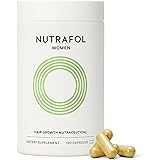Understanding the Gallbladder
The gallbladder is a small, pear-shaped organ located beneath the liver, playing a crucial role in the digestive system. Its primary function is to store and concentrate bile, a digestive fluid produced by the liver. Bile contains bile salts, bilirubin, cholesterol, and various electrolytes, which aid in the emulsification and digestion of fats in the small intestine. When food, particularly fatty meals, enters the small intestine, the gallbladder releases bile through the bile ducts into the duodenum, facilitating the digestive process.
In addition to its role in fat digestion, the gallbladder has implications for overall digestive health. A well-functioning gallbladder ensures that bile is readily available to break down dietary fats, aiding in nutrient absorption and preventing digestive disturbances. However, various issues can arise affecting the gallbladder’s performance. Common gallbladder problems include gallstones, cholecystitis (inflammation of the gallbladder), and gallbladder dysfunction. Gallstones, formed from hardened deposits of digestive fluid, can block bile ducts, leading to significant pain and digestive complications.
Symptoms associated with gallbladder issues often include abdominal pain, especially in the upper right region; nausea; vomiting; and bloating. Some individuals may also experience jaundice or changes in stool color if bile flow is obstructed. These symptoms highlight the importance of maintaining gallbladder health and understanding the potential benefits of a gallbladder cleanse. By addressing gallbladder health through dietary adjustments and cleansing practices, individuals may alleviate discomfort and improve their overall digestive well-being, making education on this vital organ essential.
The Importance of Gallbladder Health
The gallbladder is a small yet integral organ that plays a crucial role in the digestion and absorption of fats. It functions as a reservoir for bile, a digestive fluid produced by the liver, which is essential for breaking down dietary fats and facilitating nutrient absorption. Maintaining gallbladder health is vital for overall digestive efficiency and, by extension, overall well-being. When the gallbladder operates effectively, it promotes a balanced digestive process, ensuring that the body can utilize the nutrients from food efficiently.
Conversely, a poorly functioning gallbladder can lead to various digestive disorders. Conditions such as gallstones, inflammation, or biliary dyskinesia can severely hinder digestion, resulting in symptoms like bloating, abdominal pain, and indigestion. These issues can significantly impact one’s dietary choices, often leading to reduced fat intake and a lack of essential fatty acids, which are necessary for various bodily functions, including hormone production and nutrient absorption. Therefore, individuals experiencing gallbladder-related problems may find themselves in a cycle of dietary limitations that can affect their overall health.
Moreover, gallbladder health influences not only digestive capability but also the body’s metabolic processes. Compromised gallbladder function can cause bile to become stagnant, leading to a decrease in bile salts that are required for effective emulsification of fats. This inefficiency can contribute to malabsorption, resulting in deficiencies of fat-soluble vitamins such as A, D, E, and K. Consequently, individuals may experience adverse effects on their immune system, skin health, and energy levels. Hence, promoting gallbladder health is crucial to ensuring not just optimal digestion but also enhanced overall wellness.
What is a Gallbladder Cleanse?
A gallbladder cleanse is a therapeutic process aimed at promoting the health and functionality of the gallbladder, an organ that plays a crucial role in digestion. This cleanse typically involves methods designed to flush out accumulated bile and any potential gallstones, thereby enhancing digestive efficiency. Various types of gallbladder cleanses exist, each with its own approach and methodology.
Natural remedies represent one popular category of gallbladder cleanses. These methods often employ dietary adjustments and the use of herbal supplements that are believed to support bile production and flow. For instance, certain herbs such as dandelion and milk thistle are commonly recommended, as they are thought to stimulate liver function and improve bile secretion. Additionally, maintaining a diet rich in fiber and healthy fats may aid in the efficient functioning of the gallbladder.
Detox diets also serve as another option for those interested in gallbladder cleansing. These diets typically involve significantly reducing or eliminating certain food groups—like processed foods, sugars, and saturated fats—in favor of whole foods. The rationale is to minimize the toxic burden on the gallbladder and liver, which can facilitate more effective bile production and expulsion. Many individuals report feeling lighter and more energized following such dietary alterations, which can contribute to overall digestive health.
In medical contexts, healthcare professionals may recommend procedures specifically aimed at treating gallbladder issues. One such procedure is endoscopic retrograde cholangiopancreatography (ERCP), which can remove blockages that cause bile stagnation. This intervention often proves essential for individuals suffering from significant gallbladder dysfunction or pain related to gallstones.
Overall, a gallbladder cleanse can be a valuable adjunct to maintaining digestive health. It involves a variety of approaches, from natural remedies and detox diets to medical treatments, all aimed at optimizing gallbladder function and preventing future complications.
Signs You May Need a Gallbladder Cleanse
Understanding the signs that may indicate a need for a gallbladder cleanse is essential for maintaining digestive health. The gallbladder plays a crucial role in breaking down fats and aiding the digestive process, and when its function is compromised, various symptoms may manifest. These symptoms can serve as essential signals that you may benefit from a cleanse to promote gallbladder health.
One of the most common indicators that the gallbladder might not be functioning optimally is experiencing persistent digestive complaints. Individuals may notice consistent discomfort after consuming meals, particularly those high in fats. Such discomfort can manifest as pain in the upper right abdomen or a feeling of fullness that lingers long after eating. If these symptoms are frequent, it may be worthwhile to consider a gallbladder cleanse.
Bloating is another prevalent symptom that could signal the need for a gallbladder cleanse. After meals, especially those rich in fatty substances, individuals might experience excessive gas or a swollen abdomen. This discomfort can be troubling and significantly impact daily life, suggesting that the gallbladder may be struggling to process fats appropriately.
Additionally, changes in bowel habits can also indicate gallbladder distress. For example, diarrhea or greasy stools may signify the gallbladder’s inability to release sufficient bile for fat digestion. These gastrointestinal changes can be harmful if left unaddressed and are often accompanied by feelings of nausea or indigestion.
It is essential to carefully monitor these symptoms, as they can provide valuable insights into the health of the gallbladder. If you experience one or more of these signs consistently, seeking consultation with a healthcare provider may help determine if a gallbladder cleanse is necessary for your overall digestive well-being.
Preparing for a Gallbladder Cleanse
Embarking on a gallbladder cleanse requires careful preparation to ensure a successful and safe experience. The first step in this process is to evaluate and modify your diet. A diet rich in whole foods, including fruits, vegetables, whole grains, and healthy fats, is crucial. It may be beneficial to decrease or eliminate foods high in saturated fats, processed sugars, and refined carbohydrates, as these can burden the digestive system and the gallbladder. Incorporating foods known to support gallbladder health, such as beets, artichokes, and leafy greens, can foster a conducive environment for a cleanse.
In addition to dietary adjustments, individuals should assess their current medication regimen. Certain medications may interact unfavorably with the cleanse process or even hinder its effectiveness. It is advisable to review all medications with a healthcare professional who can guide necessary modifications or alternatives. For those on medications affecting bile production or digestion, specialized adjustments may be particularly important to maximize the benefits of the cleanse.
Consultation with a healthcare professional cannot be overstated in the preparation phase. A medical expert can provide personalized recommendations based on one’s unique health profile, existing medical conditions, and any potential risks associated with a gallbladder cleanse. This consultation is vital for individuals with pre-existing gallbladder problems, liver disease, or other gastrointestinal issues, as these conditions may necessitate a tailored approach.
Ultimately, thorough preparation can significantly enhance the effectiveness of a gallbladder cleanse while minimizing risks. By adhering to dietary guidelines, carefully reviewing medications, and consulting with a healthcare expert, individuals can approach the cleanse phase with confidence and clarity.
Popular Methods for Gallbladder Cleansing
Gallbladder cleansing has gained traction as individuals seek ways to promote digestive health and well-being. There are multiple methods available, spanning from natural approaches to more intensive detox protocols. Understanding these various techniques can provide insights into effective gallbladder health maintenance.
One of the most common natural approaches involves the use of herbal remedies. Certain herbs, such as dandelion and milk thistle, are known for their beneficial properties in supporting liver and gallbladder function. These herbs can help stimulate bile production, which is essential for fat digestion and overall gallbladder health. Incorporating these herbs into a daily routine, whether through teas or capsules, may prove advantageous for those seeking to enhance their digestive health.
Juicing is another popular method for gallbladder cleansing. Freshly squeezed juices, particularly those made from apples, beets, and citrus fruits, are often recommended. These juices can aid in detoxification and help flush out any accumulated toxins, promoting a healthier gallbladder. The natural enzymes and antioxidants found in these fruits may also support digestion and bile flow, thus assisting in the overall cleansing process.
Dietary changes play a crucial role in many gallbladder cleansing methods. Adopting a diet rich in fiber, healthy fats, and whole foods can promote optimal gallbladder function. Foods such as avocados, nuts, and oily fish contribute to healthy fats, while whole grains and leafy greens enhance fiber intake. Reducing processed foods and saturated fats is equally important, as they can negatively impact gallbladder health.
For those looking for more intense protocols, the olive oil and lemon juice cleanse is commonly practiced. This method involves consuming a specific quantity of olive oil followed by lemon juice to encourage gallbladder contraction and bile release. However, individuals considering this approach should consult with a healthcare provider, especially if they have pre-existing health conditions.
Through these methods, individuals can take proactive steps toward a healthier gallbladder, enhancing their digestive health and overall well-being.
What to Expect During and After the Cleanse
During a gallbladder cleanse, individuals often undergo a range of experiences that can vary significantly from person to person. One of the most common occurrences is the manifestation of detox symptoms, which may include nausea, abdominal cramping, and changes in bowel movements. These symptoms can arise as the body processes and eliminates toxins and accumulated waste from the gallbladder and liver. It is important to note that while some discomfort may be expected, severe pain or prolonged symptoms should prompt consultation with a healthcare professional.
Emotional responses can also play a role during the cleanse. The physical act of detoxification may evoke feelings of anxiety or irritability in some individuals, which could be attributed to the dietary restrictions and the body’s adjustments to cleansing. Additionally, individuals might experience mood fluctuations as their body purges toxins, making it critical to maintain a calm mind and supportive environment during this time. Practicing stress-reducing techniques, such as meditation or gentle yoga, can be beneficial in managing these emotional responses.
Following the cleanse, post-cleanse care is essential for optimal digestive health. It is crucial to reintroduce foods gradually, starting with easily digestible items such as broths and steamed vegetables. This approach helps the digestive system acclimatize without overwhelming it. Maintaining a balanced diet rich in fiber, healthy fats, and hydration supports the gallbladder’s functionality and promotes overall well-being. Moreover, monitoring how the body reacts to different foods can provide valuable insights into proper dietary choices in the long term.
In conclusion, understanding what to expect during the gallbladder cleanse and how to care for oneself afterward can significantly enhance the cleansing experience. Being prepared for physical and emotional fluctuations and adhering to a proper post-cleanse diet contributes to effective gallbladder health management.
Maintaining Gallbladder Health Post-Cleanse
Once you have completed a gallbladder cleanse, it is essential to adopt measures that support your long-term gallbladder health. This involves making dietary modifications, incorporating specific lifestyle habits, and actively monitoring your digestive health to prevent any recurrence of issues.
Firstly, focus on a balanced diet rich in whole foods. Incorporate plenty of fruits and vegetables, whole grains, and lean proteins into your meals. These food groups provide essential vitamins and minerals while promoting healthy digestion. It is advisable to reduce your intake of high-fat and processed foods, as these can burden your gallbladder and potentially lead to discomfort or issues in the future. Healthy fats, found in sources such as olive oil, avocados, and nuts, can support gallbladder function when consumed in moderation.
Hydration is equally important for maintaining gallbladder health. Aim to drink adequate amounts of water daily, as proper hydration aids in digestion and the transport of nutrients through your body. Additionally, integrating herbal teas like peppermint or dandelion may assist in promoting bile flow, which is crucial for the breakdown of fats.
In terms of lifestyle habits, regular physical activity plays a significant role in gallbladder health. Engaging in routine exercise can help maintain a healthy weight, which is beneficial since obesity is a risk factor for gallbladder issues. Aim for at least 150 minutes of moderate exercise per week.
Lastly, monitor your digestive health vigilantly. Pay attention to any symptoms such as bloating, gas, or abdominal pain that may arise. Keeping a symptom diary could help identify triggers or patterns that require further attention. Consulting a healthcare professional for guidance or when experiencing persistent issues is advisable. Adopting these practices will not only enhance your gallbladder health but will contribute positively to your overall digestive well-being.
Consulting with a Healthcare Professional
Before embarking on a gallbladder cleanse, it is crucial to consult with a healthcare professional. This step ensures that the cleanse is suitable for your specific health condition and digestive needs. A knowledgeable clinician can evaluate your overall health status, review any existing medical conditions, and consider potential risks associated with the cleanse, thereby helping you make informed decisions.
Each individual’s health profile varies, and what might be beneficial for one person could potentially have adverse effects on another. A healthcare provider can assess factors such as age, medical history, and any medications currently being taken. For example, individuals with gallbladder disease, pancreatitis, or those who have undergone gallbladder surgery should approach a gallbladder cleanse with caution. Professional guidance can assist in identifying any contraindications that might render the detox unsafe or ineffective.
Moreover, the importance of a tailored approach cannot be overstated. A healthcare professional can recommend personalized strategies that incorporate a balanced diet and lifestyle changes, ensuring that the gallbladder cleanse aligns with your overall health objectives. Additionally, they can monitor your progress throughout the cleanse, providing valuable support and adjustments as necessary to optimize the detoxification process.
Medical professionals also offer guidance on post-cleanse care. After completing a gallbladder cleanse, it is essential to understand how to reintroduce foods gradually and the appropriate habits to maintain digestive health. By following up with a healthcare provider, individuals can address any lingering symptoms or concerns that may arise following the cleanse.
In conclusion, consulting with a healthcare professional is a vital step before and after undergoing a gallbladder cleanse. Their expertise ensures both safety and efficacy, ultimately contributing to a more successful detox experience and improved digestive health.






